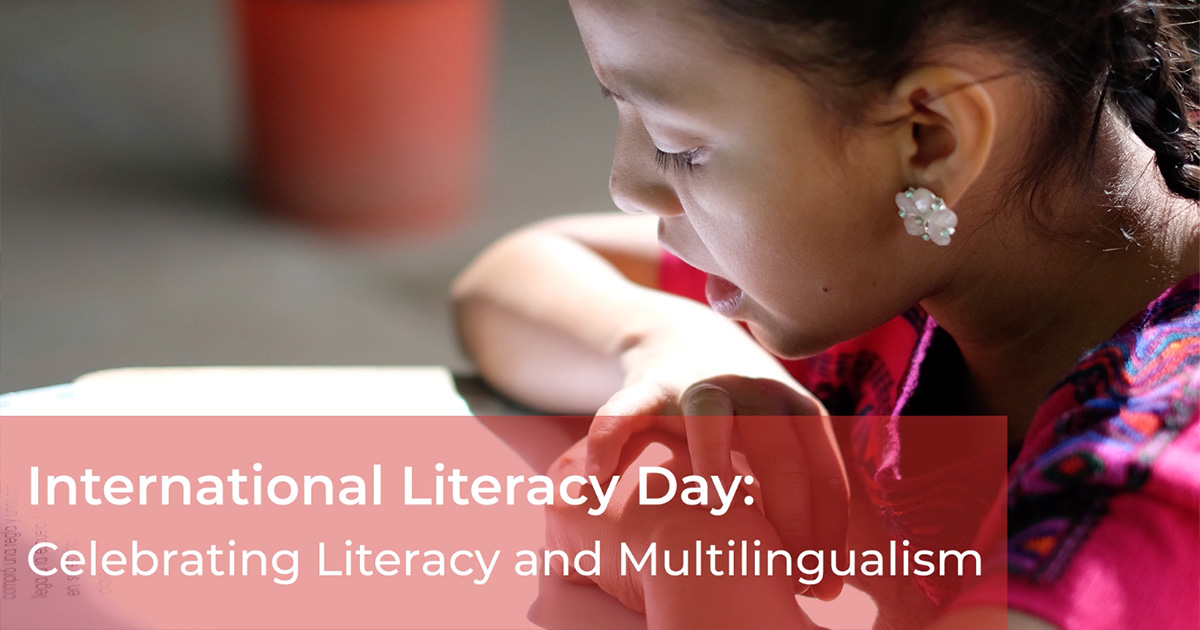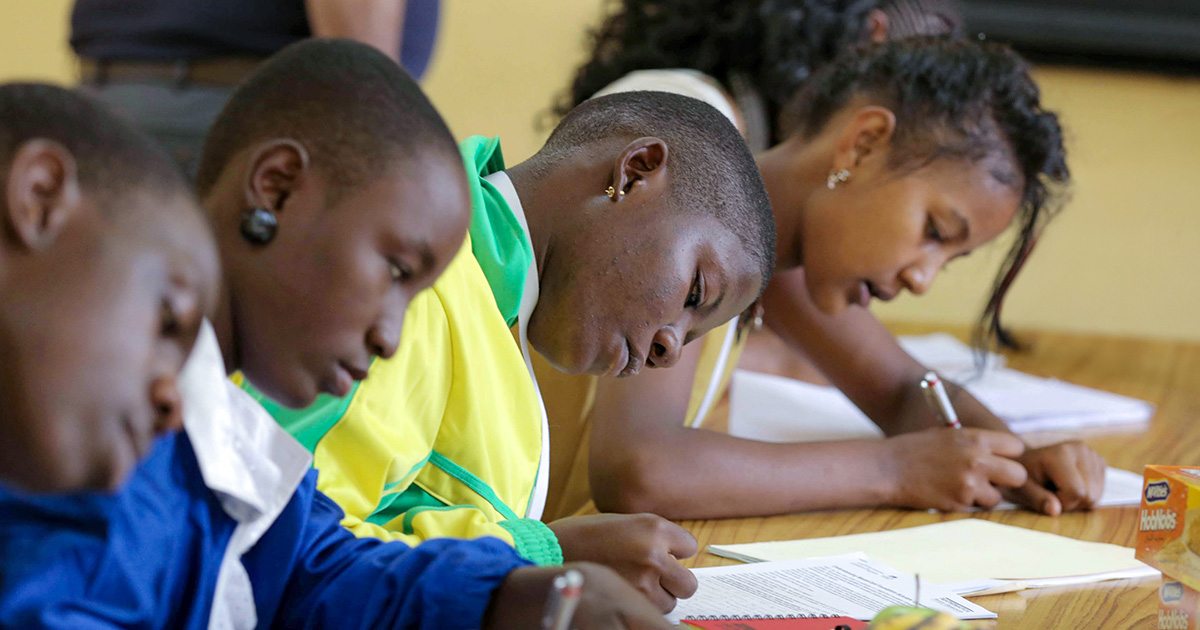International Literacy Day is a reminder of one of the world’s toughest—but most important—educational challenges: improving literacy skills among young people. Progress is being made: since 2000, the number of people ages 15–24 with no literacy skills has decreased by 27 percent worldwide. Despite this, in many low-income countries, more than half of the students in the early grades cannot read a single word, even in their local language.
To know whether a program is making a difference, there must be a deep understanding of literacy and how it should be measured across a wide array of literacy programs in many different contexts. Mathematica is proud to support organizations confronting this challenge. Mathematica partners with organizations such as the United States Agency for International Development (USAID) and the Millennium Challenge Corporation (MCC) to reimagine the way we collect and use data to improve programs in multilingual, multicultural environments. We operate at the intersection of data, methods, policy, and practice to assess the literacy skills of children and adolescents. In particular, we are generating insight into whether programs and policies that support learning in multilingual settings are making progress in improving literacy, particularly in low-income countries where illiteracy rates are disproportionately high.
USAID is relying on us to assess several projects in the Latin America and the Caribbean (LAC) Reads program. We measure fundamental literacy subtasks across numerous countries and in different age and language groups, working with local reading experts and linguists. In Guatemala and Peru, for our study of the Leer Juntos, Aprender Juntos (Read Together, Learning Together) program, we used a combination of international tools and local adaptations and translations of the Early Grade Reading Assessment to assess emergent literacy skills of dual language learners in K’iche’ and Spanish in Guatemala, and Quechua and Spanish in Peru. We assessed language dominance to ensure we tested children in the language they were most competent in so we could measure their early language skills before the intervention. In another LAC Reads evaluation of the Community Action, Reading, and Security project’s Espacios para Crecer (Spaces to Grow) an after-school program for at-risk children on the Atlantic Coast of Nicaragua, we assessed children ranging in age from 5 to 17 in Kriol and Spanish in age- and grade-appropriate literacy tasks to assess the impacts of the program.
In Niger, we partnered with Plan International, the Ministry of Education, USAID, and MCC to develop early grade reading assessments from scratch in five local languages and in French to assess the impact of instruction in the mother tongue. We found significant improvements in reading skills within the local language, particularly among girls, without those improvements affecting their reading ability in French.
Today, we are releasing a new video to celebrate International Literacy Day and this year’s theme of “Literacy and Multilingualism.” In it, colleagues from Mathematica and our subsidiary, EDI Global, read passages from one of the most translated books in the world, The Little Prince, to help call attention to the importance of embracing linguistic diversity in education and literacy interventions and our commitment to working with our global partners to address literacy challenges.
Learn more about our related work in international education:
- LAC Reads, a program created to enhance early literacy and educational opportunities in the Latin America and Caribbean region, including initiatives in Guatemala, Peru, Honduras, and Nicaragua.
- Soma Umenye, Literacy Enhanced Across Rwanda Now (LEARN), a program that aimed to improve local language reading skills of children in the first three years of primary school.
- Jordan Monitoring and Evaluation Support, a program that fostered improvements in teaching and learning practices, facilitated community engagement, and helped improve early grade learning outcomes in primary schools throughout Jordan.
- The Niger Education and Community Strengthening program, a program designed to increase access to education in targeted villages and to advance students’ achievement in reading by instructing them in their mother tongue.
- The Waache Wasome Programme, a program that aims to increase adolescent girls' participation and retention in secondary school, particularly girls ages 13-19 who reside in Tanzania.
- The KiuFunza, (Thirst for Learning) a program that Twaweza East Africa implemented with International Poverty Action and EDI. The project has shown that cash on delivery (or performance pay) for teachers can significantly improve learning outcomes. The results show positive effects on student learning, with pupils learning in one year what would normally take them 15 months to learn. Twaweza is now exploring rolling this program out nationally with the Ministry of Education.




